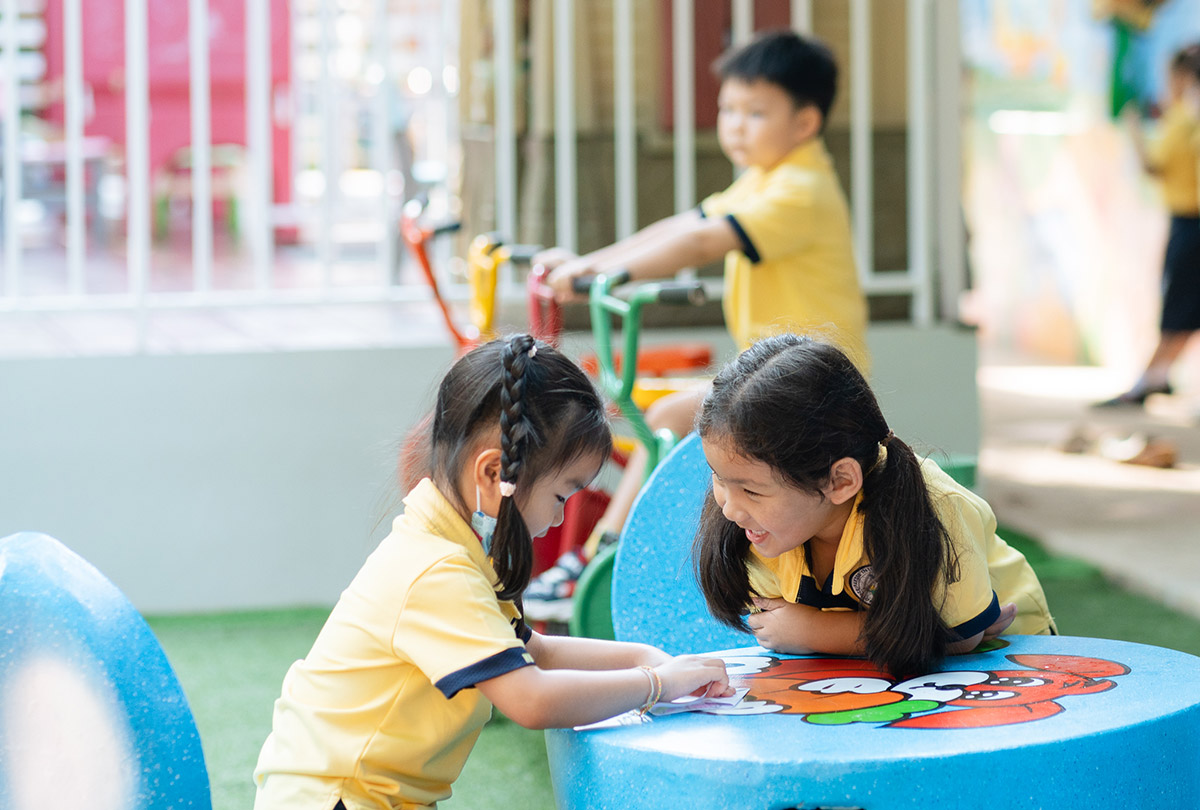

1) PRE SCHOOL & KINDERGARTEN


2)PRIMARY SCHOOL


3) SECONDARY SCHOOL
Our Early Years phase is made up of 3 levels, for children between two and five years old.
At MIS we use a unique curriculum that combines the English EYFS curriculum with elements of the Montessori method designed to promote the key areas of care, development and learning.
The Kindergarten level is equivalent to the Reception class in the English system where more formal learning objectives, such as synthetic phonics and number bonds, are combined with the developmental aspects of the Early Years Learning Goals




At MIS our Primary school caters for children between five and 11 years old. In line with the English Primary school system, it is divided into two distinct key stages: Key Stage 1 (Years 1 & 2) and Key Stage 2 (Years 3 – 6). The MIS Primary curriculum is rooted in the English National Primary Curriculum with some modifications that take account of the cultural and linguistic make-up of our student body.
All of our pupils are treated as individuals and their unique talents are nurtured and developed within a framework of high academic standards and a wide range of experiences.
At MIS our Secondary school welcomes students between the ages of 11 and 16. It is also divided into Key Stages following the English model: Key Stage 3 (Years 7 – 9) and Key Stage 4 (Years 10 & 11). Secondary school students follow the Cambridge International curriculum in preparation for the Cambridge International General Certificate of Secondary Education (IGCSE) exams which they usually take towards the end of Year 11.
As our students progress through the secondary school an increasing emphasis is placed on producing independent and self-motivated learners who are developing the critical thinking and collaborative skills that are now being sought by universities and employers.


ELS means “English Language Support”. People usually use the word ELS to talk about teaching English to people who do not speak English.
The M.I.S. ELS program is established to provide students with the vocabulary and grammatical structures needed for everyday life and for school performance. The program functions for students in Year 1 and above, teaches the academic, social, and cultural aspects of the English language through the teaching of reading, writing, speaking, and listening..
The ELS teacher uses sound instructional techniques to support learners’ development with the objective of helping students to develop the language skills necessary to be successful at school. The ELS program provides the English Language Learner (ELL) the opportunity to grasp the academic, social, and cultural aspects of the English language through the teaching of reading, writing, speaking, and listening.
The target population for the ELS program is defined in term of the competency of each student in English. Any student who may be classified within any of the categories listed below should be provided English Language Support instruction.
There is an additional fee for ELS provision depending on the level and intensity of the appropriate programme. Under the moderate support programme students would attend between 2 and 4 ESL lessons per week. The intensive programme, for students whose English language ability is especially underdeveloped, provides for 5 to 10 lessons. The level and frequency of ELS lessons will be decided by the ELS teachers in collaboration with the ELS coordinator.
Note: ELS programme charges are all per term.
The ELS program, which is based on themes and units, utilizes a range of educational resources. These resources are either adapted by teachers or produced commercially. The program aims to develop proficiency in four key skills: listening, speaking, reading, and writing. While the program does address Cognitive Academic Language Proficiency (CALP), its primary focus is on fostering Basic Interpersonal Communication Skills (BICS). The program caters to the vocabulary and comprehension needs at all levels.